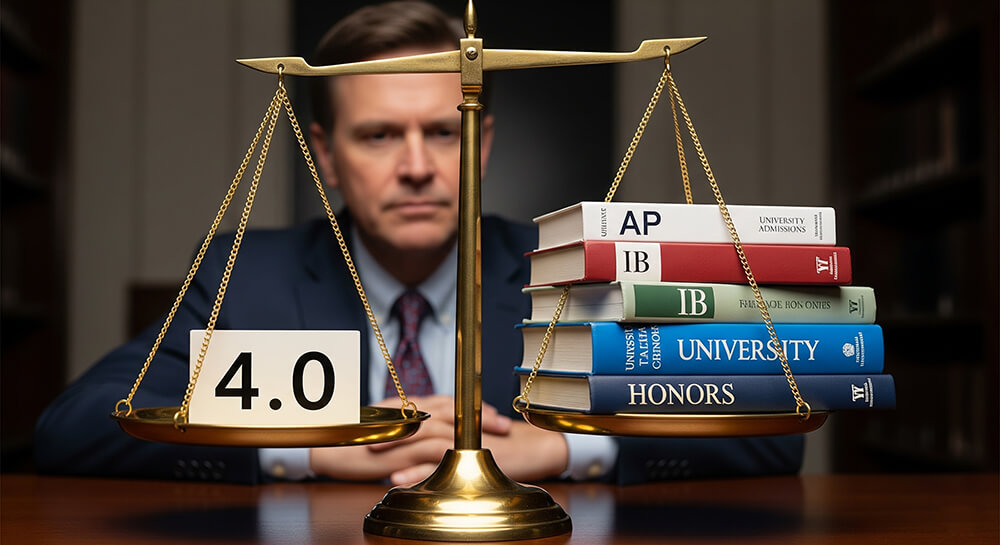Ivy League GPAs: What You Need to Know for Admission
Getting into an Ivy League school is very competitive. Your grades are a big part of your application. These schools look for students who do very well in their classes.
Key Takeaways:
- High GPAs are standard: Most students accepted to Ivy League schools have an unweighted GPA of 3.9 or higher.
- Weighted GPAs are often above 4.0: Because students take hard classes like AP or IB, their weighted GPAs are usually between 4.1 and 4.2.
- Top of the class: Successful applicants are almost always in the top 10% of their high school class.
- No official minimum: Ivy League schools do not have a set minimum GPA to apply. They look at your whole application.
What Are the Average GPAs for Ivy League Schools?
Ivy League schools are among the most selective in the world. While they look at many parts of an application, your Grade Point Average (GPA) is very important. It shows your academic performance over time. Most admitted students have nearly perfect grades.
Here is a look at the typical GPA ranges for accepted students at these eight universities.
| School | Average Unweighted GPA | Average Weighted GPA |
|---|---|---|
| Harvard University | 3.9–4.0 | 4.15–4.25 |
| Yale University | 3.9–4.0 | 4.13–4.17 |
| Princeton University | 3.9 | 4.0+ |
| Columbia University | 3.9–4.0 | 4.1+ |
| UPenn | 3.9 | 4.1+ |
| Brown University | 3.9–4.0 | 4.1+ |
| Dartmouth College | 3.9 | 4.1+ |
| Cornell University | 3.9 | 4.1+ |
Understanding Your GPA for College Applications
Your GPA is a key number in your college application. It is important to know how to calculate your GPA correctly. You can use a simple GPA formula guide to understand the math. This number helps colleges quickly see your academic record. For a deeper look, it is helpful to understand the difference between quality points vs. GPA explained. Using a high-school gpa calculator can help you track your progress.
Weighted vs. Unweighted GPA
Colleges look at both weighted and unweighted GPAs. An unweighted GPA is on a 4.0 scale and does not consider class difficulty. A weighted GPA gives extra points for harder classes like Honors, AP, or IB. You can explore a GPA weighting guide for Honors and AP to learn more. Many myths exist about this topic, so it's good to read up on weighted GPA myths debunked. Understanding the details of weighted vs. unweighted GPA is crucial for your application.
Different GPA Scales and Conversions
Not all schools use the same GPA scale. Some schools use a 5.0 GPA scale guide, which is common for weighted GPAs. There are many types of GPA scales used around the world. It can be helpful to see a GPA scale comparison to understand where you stand. If your school uses percentages, you can use a percentage to 4.0 GPA conversion tool. For students outside the U.S., an international GPA converter guide is a valuable resource.
How Course Rigor Affects Your Chances
Ivy League schools want to see that you challenged yourself. Taking advanced courses like International Baccalaureate (IB) is a great way to do this. An IB to GPA conversion guide can help you see how these classes affect your GPA. The way school districts calculate GPA can also vary, so knowing your school's policy is important. A regular transcript GPA audit guide can help you ensure everything is accurate.
How to Plan and Improve Your GPA
It is never too early to start thinking about your grades. Good study tips for better grades can make a big difference. Creating a raise my GPA action plan helps you set clear goals. Proper time management templates for GPA can help you stay organized. It is also wise to perform a study habit audit checklist to find areas for improvement.
Dealing with Special Grade Scenarios
Sometimes, grades are not straightforward. It is important to know how pass/fail grades impact your GPA. If you have missing grades, a GPA planning for incomplete grades tool can be useful. A planner for incomplete grades scenario planner can also help. If you are changing schools, a transfer credits GPA integrator will be important. Taking a class again may be an option, and a repeat course GPA recalculator can show you the impact.
The Reality of Ivy League Admissions
A high GPA is necessary, but it does not guarantee admission. Schools also look at essays, extracurricular activities, and recommendation letters. The idea of GPA inflation vs. deflation is a real topic in admissions. Even with perfect scores, many students are not accepted. Your entire application needs to tell a compelling story about who you are. To get a complete picture, you can visit The GPA Calculator for more resources.
Useful Tools for Every Student
Many online tools can help you manage your grades. A college GPA calculator is essential for current college students. You can also use a cumulative GPA calculator to track your progress over time. For specific needs, there are tools like a semester GPA calculator and a last 60 credits GPA calculator. A freshman year GPA predictor can help you start high school on the right track.
Frequently Asked Questions
1. What is the lowest GPA accepted to an Ivy League school? There is no official minimum GPA. However, successful applicants usually have unweighted GPAs of 3.9 or higher. A lower GPA might be considered if other parts of the application are exceptional.
2. Do Ivy League schools prefer weighted or unweighted GPA? Admissions officers look at both. The unweighted GPA shows your core academic performance, while the weighted GPA shows the rigor of your coursework. Taking challenging classes is very important.
3. Can a perfect GPA guarantee admission to Harvard? No, a perfect GPA does not guarantee admission. Harvard and other Ivy League schools have a holistic review process. They consider your essays, extracurriculars, recommendations, and personal qualities.
4. How much do AP and IB classes help my chances? Taking AP and IB classes significantly helps your application. It shows that you can handle college-level work. Strong grades in these courses will boost your weighted GPA and demonstrate academic readiness.




